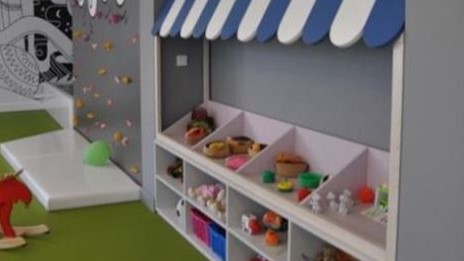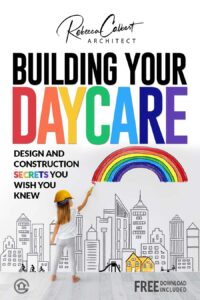Have you ever wondered how the education levels of your childcare center staff impact the success of your business? It’s likely more significant than you think. In the competitive and ever-evolving world of childcare services, one crucial factor that can significantly influence a center’s success is the education level of its staff. This insight can help you understand why investing in education for your staff not only benefits the children in their care but also boosts your center’s reputation and operational effectiveness.

Understanding the Impact of Education on Childcare Success
When it comes to managing a childcare center, the educational background of your staff is foundational. Highly educated staff not only provide better care but also enhance communication with parents and improve the overall learning environment for children. Education imparts essential skills, knowledge, and strategies to handle diverse educational and developmental needs, which are critical in early childhood education settings.
The Role of Education in Child Development
Education plays a pivotal role in shaping a child’s future. Staff with higher qualifications in fields relevant to early childhood education are better equipped to create learning environments that foster development. They understand child development stages, learning techniques, and individualized care strategies, making them invaluable assets to your childcare center.
Benefits for Childcare Centers
Higher educational levels among staff lead to numerous benefits for childcare centers:
- Enhanced Learning Environment: Educated staff can design curricula that meet both the developmental and educational needs of children, making the learning atmosphere more enriching.
- Parental Confidence: Parents tend to trust centers with qualified staff more. They feel assured knowing that their children are in the hands of professionals capable of meeting various learning and developmental needs.
- Operational Efficiency: Educated staff can navigate challenges with greater ease due to their training, leading to smoother management and operation of your center.
Different Educational Levels and Their Impact
Childcare centers employ staff with varying educational backgrounds, from high school diplomas to master’s degrees. Here’s how each level impacts the service offered.
High School Diploma
Staff with a high school diploma are often entry-level employees who are passionate about working with children but might lack the theoretical understanding of childhood development. While they can provide basic care and support, they might require supervision and further training to tackle complex child development issues. However, with the right guidance and professional development opportunities, they can grow into more skilled and knowledgeable caregivers.
Associate Degree
Individuals with an associate degree typically have foundational knowledge of early childhood education. This degree provides them with a basic understanding of child development, classroom management, and instructional strategies. These employees can be an asset as they often bring a blend of practical experience and educational insight to your center. They usually require less supervision and can take on more responsibility than those with only a high school diploma.
Bachelor’s Degree
A bachelor’s degree signifies a higher level of education and expertise in early childhood education. Staff with this qualification are well-versed in curriculum development, assessment methods, and child psychology. They possess a comprehensive understanding of educational theories and practices, enabling them to contribute significantly to creating an inclusive, supportive, and stimulating environment for young learners. Staff with a bachelor’s degree are often trusted with leadership roles within the classroom, guiding lesson planning and mentoring less-experienced staff.
Master’s Degree
Those with a master’s degree bring an advanced level of expertise to a childcare center. They are proficient in conducting educational research, applying advanced child development theories, and engaging in policy development. Their deep knowledge and leadership skills can spearhead innovation and make data-driven decisions that enhance both teaching quality and operational management. They are prime candidates for administrative positions, able to oversee the educational programs, train staff, and ensure compliance with educational standards and regulations.

Why Staff Education Levels Matter For Business Owners
As a childcare business owner, understanding and appreciating the different education levels within your team can help you optimize your staff development strategies, ensuring your center thrives both educationally and financially.
Competitive Edge
A team with a diverse range of qualifications gives your center a competitive edge. Qualifications can be a significant factor for parents when choosing a childcare center, thereby directly influencing enrollment rates. Your staff’s education levels can feature prominently in your marketing materials and communications to set your center apart from others.
Quality Assurance
Your management role involves implementing strategies that ensure quality childcare services. Staff education is a critical component of quality assurance. By recruiting and retaining highly qualified staff, you assure parents and stakeholders of the high standards in your center.
Staff Retention and Satisfaction
By supporting your employees in their educational pursuits, you foster a positive work environment, leading to higher job satisfaction. Employees are more likely to remain loyal to an organization that invests in their professional development. This minimizes turnover rates, saving your center the costs associated with recruiting and training new staff members.
Continuous Improvement
Incorporating ongoing professional development for your team can enhance existing skills and introduce new ones. Conduct workshops, provide access to online courses, or sponsor attendance at relevant conferences. These continuous learning opportunities keep your staff at the forefront of best practices in early childhood education.
How to Encourage and Support Staff Education
Promoting education among your staff not only builds individual careers but strengthens your entire organization. Here’s how you can encourage and support their educational advancement:
Financial Assistance and Incentives
Offer financial support, such as scholarships or tuition reimbursements, to employees pursuing educational advancement. You can also provide incentives, such as raises or promotions, to staff members who complete higher education or obtain additional certifications.
Professional Development Programs
Develop internal professional development programs focused on upgrading the skills of your team. Regular workshops and training sessions can expose your staff to new techniques, technologies, and strategies in childcare.
Flexible Scheduling
Facilitate flexible work schedules to accommodate staff members who are pursuing further education. This could mean allowing them to adjust their working hours or providing time off for exams and study commitments.
Career Advancement Opportunities
Create a culture of growth by providing pathways for career advancement within your center. Recognize educational achievements with promotions to leadership roles, laying the foundation for a motivated and forward-thinking team.

Measuring the Success of Educational Investments
To fully appreciate the impact of investing in staff education levels, it’s crucial to measure and monitor success. Here are some ways to assess the outcomes:
Child Development Milestones
Track the developmental milestones achieved by children in your care. Growth in cognitive, emotional, and social domains can reflect the effectiveness of highly educated staff.
Parental Feedback
Solicit feedback from parents regarding their satisfaction with the educational service provided. Parents are often the best judges of improvement and advancement in their children’s development.
Staff Performance Reviews
Regularly conduct performance reviews that assess how further education has impacted staff roles and responsibilities. This tangible feedback process can highlight strengths and areas that might benefit from additional learning and training.
Operational Efficiency Analysis
Evaluate whether educational investments have led to improvements in your center’s operational efficiency. Reduced errors, better classroom management, and higher enrollment rates can all be indicators of success.
Conclusion
Investing in the educational levels of your childcare center staff is a strategic move that promises substantial returns in professionalism, quality of service, and business success. While hiring credentialed staff is an excellent starting point, fostering a culture of continuous education will offer even greater benefits. It’s up to you as a center owner to create the environment that nurtures growth, empowers your team, and ultimately delivers the care and education that sets your center apart.
The Hidden Power of Knowledge: How Educated Staff Can Make or Break Your Childcare Business
The Day Everything Clicked
A few years ago, a childcare center director named Lisa had a moment of truth. It was a Tuesday morning, the kind of morning where everything seemed just slightly off. One teacher was struggling to calm a group of toddlers who had collectively decided that today was the day they would test the limits of human patience. Another was trying to explain the concept of sharing to a group of three-year-olds, with limited success. Meanwhile, a frustrated parent was at the front desk, demanding to know why their child wasn’t progressing as quickly as the neighbor’s kid at a different daycare.
Lisa knew her staff cared deeply about the children, but she couldn’t shake the feeling that something was missing. Then it hit her: education. It wasn’t about passion or effort—her team had plenty of both. It was about the tools, the knowledge, and the strategies that come with education. The right training could turn chaotic moments into learning opportunities, diffusing tantrums with science-backed strategies rather than sheer willpower.
That day, Lisa made a decision: she was going to invest in her staff’s education. What she didn’t realize was just how much it would change everything.
Why Staff Education Matters More Than You Think
If you’re running a childcare center, chances are you’re focused on the basics: safety, curriculum, parent satisfaction, and keeping enrollment numbers healthy. But there’s a factor that quietly influences all of those things—something that can elevate your center from “decent” to “outstanding.”
It’s education.
The qualifications of your staff don’t just impact how well they do their jobs. They shape your center’s reputation, the confidence parents have in your services, and even your bottom line. A well-educated team doesn’t just provide childcare; they provide an environment where children thrive, parents feel secure, and operations run smoothly.
Let’s break it down.
How Education Transforms Childcare Centers
1. Elevating Child Development
Think about the teachers you remember most from your own childhood. Chances are, they weren’t just the ones who cared—they were the ones who understood how to reach you, how to make learning stick. In a childcare setting, the same principle applies.
- Staff with higher qualifications in early childhood education don’t just “watch” children; they shape their development.
- They understand learning techniques, behavioral cues, and emotional development in ways that make a real difference.
- They’re trained to spot learning challenges early, setting children up for long-term success.
A caregiver without formal training might react to a child’s meltdown with instinct. A caregiver with training? They recognize it as sensory overload, adjust the environment, and guide the child toward self-regulation.
2. Winning Parents’ Trust
Parents have a lot of choices when it comes to childcare, and let’s be honest—many of them have strong opinions. Would you rather leave your child with a center staffed by people with basic training, or one with educators who have studied child development, classroom management, and curriculum planning?
Education isn’t just about competence; it’s about confidence—the confidence parents have in your team. When they know their child’s teacher has real expertise, they’re more likely to stay loyal to your center.
3. Running a More Efficient Operation
Imagine a daycare where the staff intuitively understands how to de-escalate conflicts, keep classrooms organized, and design engaging lesson plans that actually work. Now imagine one where employees are constantly overwhelmed, struggling to manage behaviors, and unsure of how to communicate effectively with parents.
The difference? Education.
Highly trained employees need less supervision, make fewer mistakes, and solve problems proactively. They handle everything from daily routines to unexpected challenges with confidence, allowing you to focus on growing your business instead of constantly putting out fires.
The Education Levels That Make a Difference
Not all education is created equal. Let’s look at how different levels of training impact childcare centers.
High School Diploma: The Starting Point
These staff members are often entry-level employees—passionate and eager, but still learning. They can provide basic care and support, but they need mentorship and additional training to handle the more complex aspects of child development.
Associate Degree: The Bridge Between Passion and Practice
A two-year degree in early childhood education gives staff a solid foundation in child development and classroom management. These employees often have more confidence in handling group dynamics and need less oversight than those with only a high school diploma.
Bachelor’s Degree: The Classroom Leaders
A four-year degree means staff have studied curriculum design, assessment techniques, and behavioral guidance strategies in depth. These employees bring a research-based approach to early childhood education, making them invaluable leaders in the classroom.
Master’s Degree: The Game Changers
Staff with master’s degrees aren’t just educators—they’re strategists. They understand child psychology at a deep level, know how to measure developmental progress effectively, and often take on leadership roles within the center. They can mentor junior staff, design innovative programs, and ensure compliance with educational regulations.
Why Business Owners Should Care
Let’s be blunt: education isn’t just good for the children—it’s good for business.
1. It Gives You a Competitive Edge
When parents compare childcare centers, qualifications matter. If they see that your staff has higher education levels than the competition, your center instantly stands out.
2. It Reduces Staff Turnover
Employees who feel valued are more likely to stay. Investing in their education shows them that you’re invested in their growth, making them more loyal and engaged.
3. It’s a Long-Term Investment in Quality
Every dollar spent on staff education comes back in the form of higher enrollment, stronger parent satisfaction, and smoother operations. The more knowledgeable your team, the less time you spend dealing with crises.
How to Support and Encourage Staff Education
If you’re convinced that education is the key to success, the next step is figuring out how to make it happen. Here’s how:
1. Offer Financial Support
- Tuition reimbursement for courses
- Incentives for staff who pursue higher education
- Scholarships for professional development
2. Create Professional Development Programs
- Host in-house training sessions
- Provide access to online courses
- Send staff to early childhood education conferences
3. Allow Flexible Scheduling
- Offer adjusted work hours for staff taking classes
- Provide paid time off for exams or study sessions
4. Recognize and Reward Educational Achievements
- Promotions for staff who complete degrees
- Raises or bonuses for obtaining additional certifications
- Public recognition in staff meetings and newsletters
Measuring Success: Is It Worth It?
If you want to know whether your investment in staff education is paying off, look for these signs:
✔ Children reaching key developmental milestones faster
✔ More positive feedback from parents
✔ Lower staff turnover rates
✔ Higher enrollment numbers
✔ Smoother daily operations with fewer behavioral issues
Final Thoughts: The Smartest Investment You Can Make
At the end of the day, running a successful childcare center isn’t about just getting by—it’s about creating something exceptional. And the best way to do that? Invest in education.
Because when you give your team the knowledge they need to thrive, everything else falls into place. Parents trust you more. Children benefit more. And your business? It grows in ways you never imagined.
Just ask Lisa. Today, her center is thriving—not because she worked harder, but because she made a simple, powerful choice: to make education the foundation of everything.

